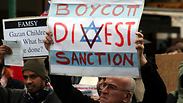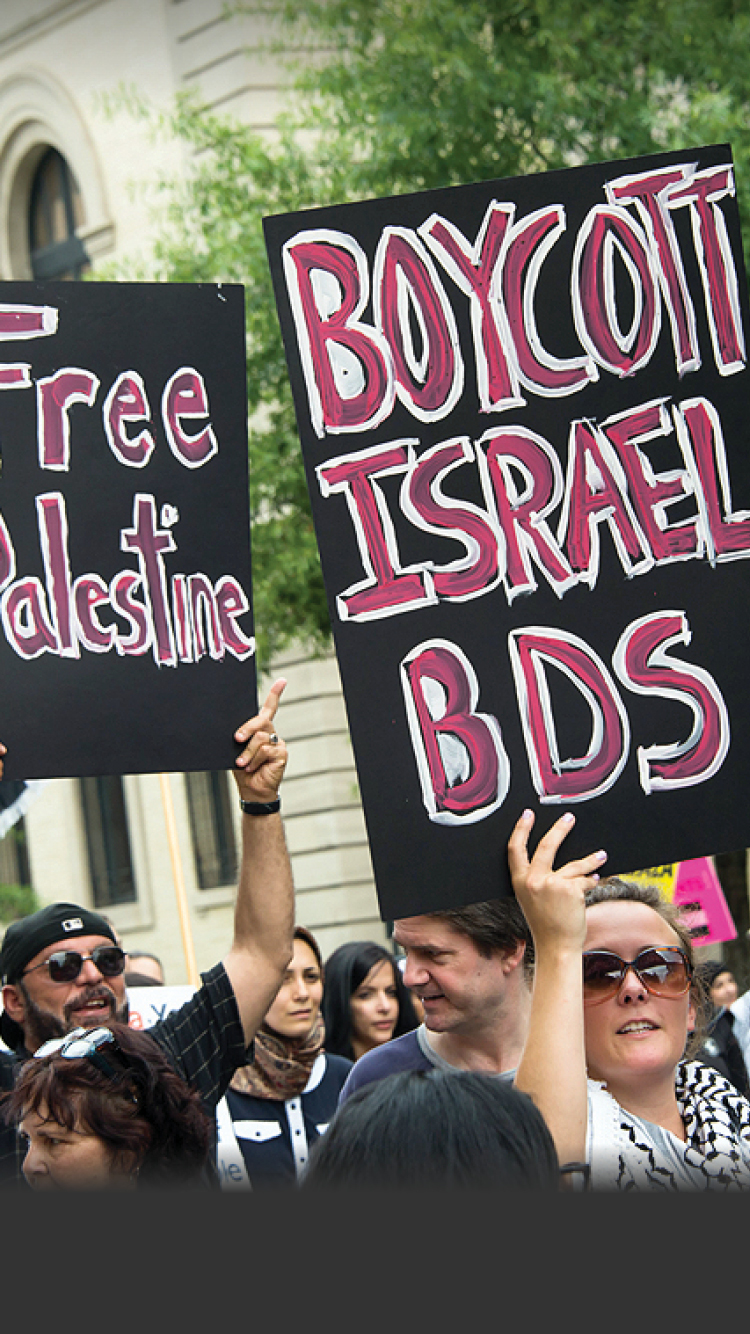
University of California approves anti-Semitism condemnation
UC's governing board issues statement of principals denouncing anti-Semitism, yet stopped short of condemning rejection of Israel's right to exist, as detractors say it limits freedom of speech.
A committee of the university's Board of Regents voted unanimously on Wednesday to send what is being called a "Statement of Principles Against Intolerance" and a report summarizing the context for it to the full board for consideration.
A year in the making, the documents were prepared at the urging of some Jewish groups that argued the 10-campus UC system needed to affirm its opposition to anti-Semitism amid growing student activism on behalf of Palestinian rights.
"There is absolutely no doubt that anti-Zionism is the driving force behind the alarming rise in anti-Semitism at UC and at schools across the country," said Tammi Rossman-Benjamin, a Hebrew lecturer at the university's Santa Cruz campus who led the campaign.
When a draft of the statement was released last week, critics expressed alarm over language in the accompanying report that cited both anti-Semitism and "anti-Zionism" - the rejection of Israel's right to exist - as types of discrimination that don't belong at the university.
Faculty and student groups said the report, if endorsed along with the principles themselves, could be used to stifle free speech and scholarship. The regents' Educational Policy Committee softened the disputed wording slightly on Wednesday.
"Anti-Semitism, anti-Semitic forms of anti-Zionism and other forms of discrimination have no place at the University of California," it now reads.
Some students said the final language still conflated a political doctrine with anti-Jewish bias and could suppress free speech.
"Anti-Semitism and anti-Zionism have very little to do with each other," said Tallie Ben Daniel, an academic advisory council coordinator for the group Jewish Voice for Peace.
Regent Norman Pattiz, who served on the task force that drafted the statement and report, said it was appropriate for the university to link disapproval of Israel with prejudice toward Jewish people and that the issue was a personal one for him.
"My colleagues on the working group couldn't done a better job of looking at the roots of these issues and finding ways to deal with the subject of anti-Semitism, which for some reason has had a very difficult time finding its way into the group of minorities that in some way have faced intolerant behavior, Pattiz said.
"Well that's over now. It's found its way in," he said
Supporters of the draft, including student regent Abraham "Avi" Oved, whose parents were born in Israel, said anti-Zionism has evolved into a politically coded contemporary brand of anti-Semitism.
From their perspective, anti-Zionist rhetoric - marked by calls for Israel's destruction or denial of its right to exist - frequently feeds more overt forms of anti-Jewish hatred.
He cited an instance in which the phrase "Zionists should be sent to the gas chamber" was scrawled on a building at UC Berkeley after a student senate campaign calling for university divestment from US companies doing business with Israel.
The UC system is considered one of the most prestigious higher education institutions in the country, comprising 10 campuses including the University of California, Berkeley and the University of California, Los Angeles.
If adopted on Thursday, the declaration would make the University of California the first public university system to reaffirm its opposition to anti-Semitic behavior since campaigns for academic and economic boycotts of Israel have taken root on many US college campuses.
Pro-Palestinian groups and faculty members with research specialties in the Middle East were upset that anti-Semitism was the only type of intolerance specifically mentioned in the principles at a time when Muslims in the US increasingly face discrimination.
Free speech advocates remained concerned that the slight change to the introductory report made Wednesday did not go far enough.
"We called for the UC to change the prior version to make clear that anti-Zionism, like other political speech, is not equated with discrimination," Alan Schlosser, senior counsel at the ACLU of Northern California, said. "Unfortunately, the revised version doesn't give that clarity.
The system-wide principles are meant to be "aspirational rather than prohibitory," said Charles Robinson, the UC system's general counsel,
As such, they do not bar particular acts or proscribe sanctions but serve to remind administrators of their duty to combat bias and to impose discipline in cases that violate existing anti-discrimination policies, Robinson said.
Reuters contributed to this story.












